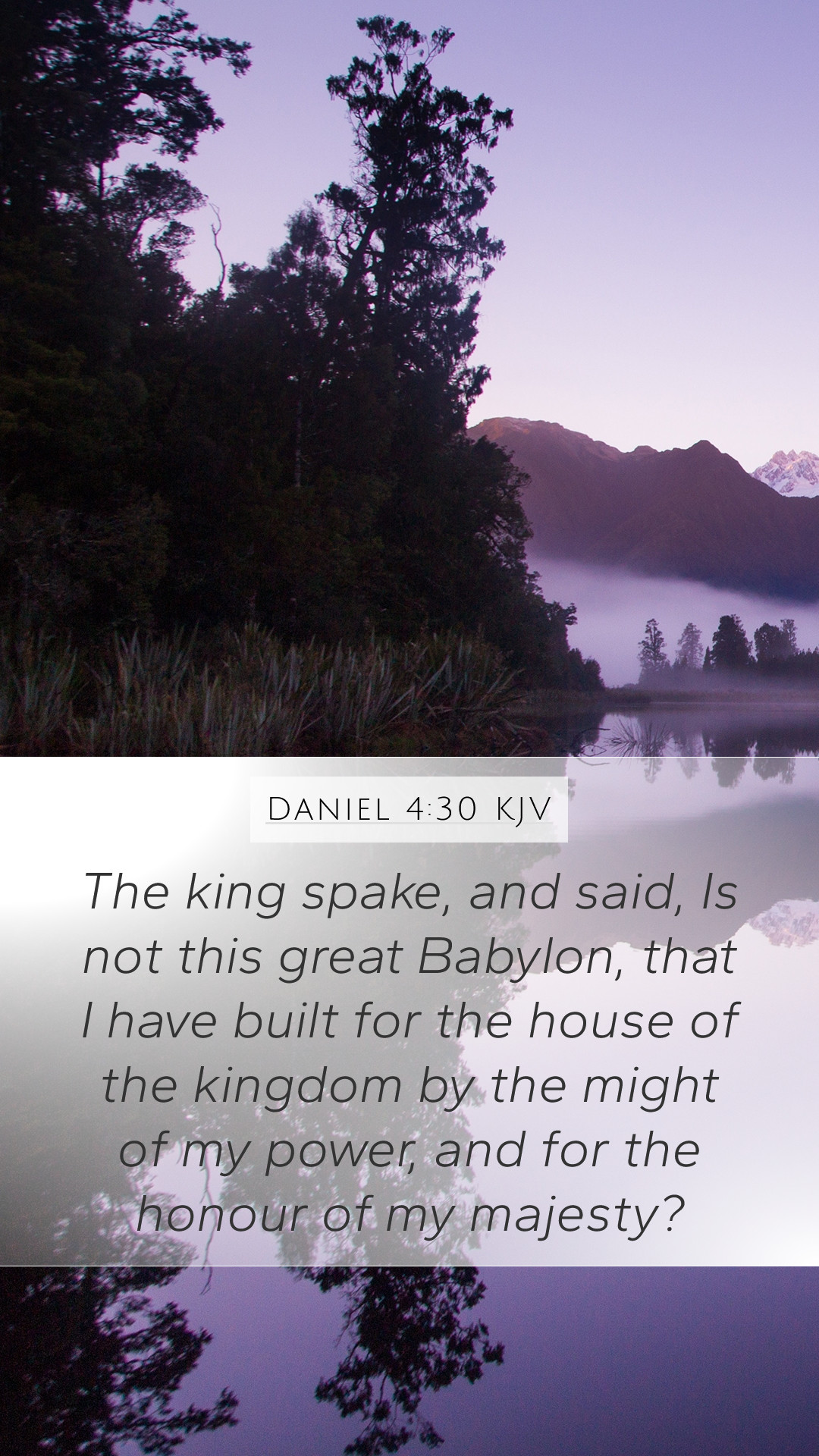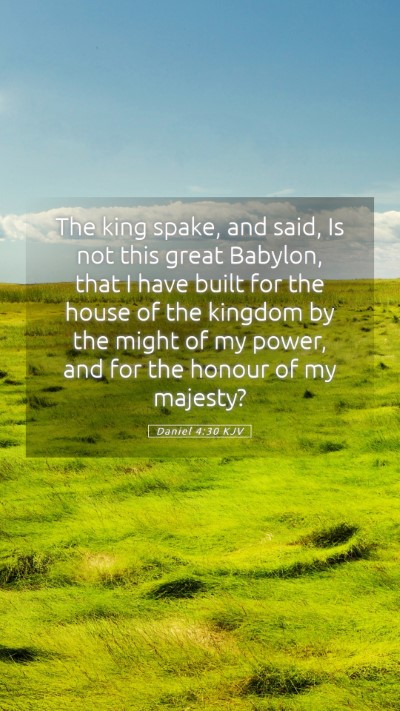Understanding Daniel 4:30
In this passage, Daniel 4:30 states:
"Is this not great Babylon, that I have built for a royal dwelling by my mighty power and for the honor of my majesty?"
Verse Context and Background
This verse is set in the context of King Nebuchadnezzar reflecting on his accomplishments, particularly the grandeur of Babylon. A deeper understanding of this verse requires examining the broader narrative found in the Book of Daniel. The historical backdrop involves Babylon's status as a majestic city and the king's pride in his achievements.
Bible Verse Meanings
- Pride and Vanity: This statement embodies human pride and self-sufficiency. Nebuchadnezzar's assertion reflects an arrogance that disregards God's sovereignty and the ephemeral nature of human achievements.
- Idolatry of Power: The phrase highlights the king’s worship of his own power and glory, suggesting a theological commentary on the dangers of idolatry—not only in physical idols but also in self-worship.
- God’s Sovereignty: Despite Nebuchadnezzar's proclamations, the ensuing narrative reveals God's ultimate authority, as he brings the king low, demonstrating that true power lies with God alone.
Bible Verse Interpretations
Matthew Henry interprets this verse as a cautionary tale regarding the intoxicating effects of pride. He emphasizes that such arrogance can lead to divine judgment and that acknowledgment of God's supremacy is critical.
Albert Barnes notes the focus on Babylon’s grandeur as a testament to human capability, but he stresses that without recognizing God's role in bestowing power, such accomplishments lead to spiritual downfall.
Adam Clarke offers insights on the prophetic implications of Nebuchadnezzar's fall from grace. Clarke indicates that the king’s boast serves as a pivotal moment that foreshadows his impending judgment and eventual humbling.
Scripture Analysis
This verse serves as a perfect example of the tension between human ambition and divine authority. The chapter contains a critical turning point for Nebuchadnezzar, as God’s response to his pride shows that earthly power is transient and ultimately under divine control. The analysis of this scripture can contribute greatly to Bible study groups discussing pride and humility.
In-Depth Bible Verse Analysis
The broader narrative of Daniel emphasizes the importance of humility before God. Nebuchadnezzar’s boastful words suggest a refusal to acknowledge the hand of God in his successes, leading to his downfall as foretold in the interpretation of his dream by Daniel.
This necessitates an understanding of the historical context of Babylon’s achievements, exploring how this reflects on the human condition in relation to divine authority. The passage prompts considerations related to faith, power dynamics, and reliance on God.
Application of Daniel 4:30 to Daily Life
Reflecting on this verse invites readers to evaluate their own lives for signs of pride. Recognizing that personal achievements and successes are gifts from God can lead to a more humble and grateful approach to life. Believers are encouraged to seek a balance between acknowledging their abilities while giving glory to God.
Cross References
- Proverbs 16:18: "Pride goes before destruction, and a haughty spirit before a fall."
- James 4:6: "God opposes the proud, but shows favor to the humble."
- Isaiah 40:23-24: "He brings princes to naught and reduces the rulers of this world to nothing."
- Jeremiah 9:23-24: "Let not the wise boast of their wisdom or the strong boast of their strength..."
- Romans 11:33-36: “Oh, the depth of the riches of the wisdom and knowledge of God!”
Conclusion
Daniel 4:30 serves as a powerful reminder of the dangers of pride and the necessity of recognizing God’s sovereignty in our lives. Through careful Bible study insights and reflections on this and related scriptures, believers can deepen their understanding of Scripture and apply its teachings to daily life.


